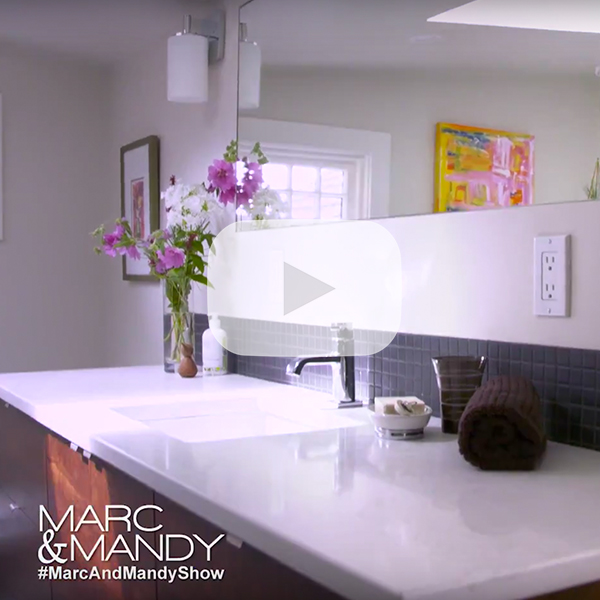Everyone hates paying for insurance when it’s not needed but they’re super grateful when something does go wrong. However, most people wouldn’t think about insurance when they’re going through a renovation. On our podcast, All Things Renovation, we interviewed Sonja Blackburn, a local insurance broker, to find out what you need to consider from an insurance perspective when renovating your house. Here is a summary of what we learned from her.
What basic things should a homeowner be checking for when hiring a contractor?
- Is your contractor insured? You want a reputable contractor who will be able to deal with anything that comes up in a swift manner.
- What are their insurance coverages? Are they insured for the services that they are providing you? Can they provide you with a certificate of insurance as confirmation?
- Are they providing you with clear scope of work? This will prevent miscommunications between you and the contractor. You can then provide this information to your insurance broker to make sure that you are covered.
This information can be obtained directly from your contractor. At the top of the insurance certificate will be a section that clearly states the description of operations. This tells you what exactly they are insured for. If it says General Contractor, they are insured for most operations related to construction.
If a homeowner is doing a large renovation, what changes need to be made to their insurance policies?
- Homeowner policies generally don’t cover renovations or construction. You need to let your insurance broker know anytime that you are upgrading your home.
- If you are adding to the value of your home, your insurance limits may no longer represent the amount of coverage that you need.
- When you are performing any time of renovation at your home, whether it is structural or cosmetic, coverages are automatically restricted during that period.
- Typically, your water damage coverage will be restricted to either no coverage or at minimum, sewer backup.
- Your liability coverages will be restricted.
- You also want to make sure that you’re aware of coverages such as glass breakage and vandalism.
Reporting these changes to your insurance broker doesn’t automatically mean that you’re going to pay more for insurance. Sometimes you may actually end up paying less because of upgrades to your home!
What if a client has to move out of their house during a renovation?
If you have to move out of your house during the renovation, your house automatically becomes “vacant”. Most policies restrict coverage during vacancy. After 30 days of vacancy, if you haven’t reported it to your insurance broker, all coverages will cease.
Insurance companies offer a vacancy permit. You will pay an additional premium based on the number of months that the home will be vacant. When you move back in, this gets removed. You will be refunded for the premiums on any unused portion of the time.
Note that coverages are still restricted during this time so make sure you have the proper security in place.

How is jobsite security addressed with insurance policies?
Talk to your contractor about what type of security they will be providing on site. You can obtain a Course of Construction policy that provides more extensive coverage for you for theft of materials, materials in transit, vandalism etc.
The work has been completed but something fails…then what?
Start with your home insurance policy. An inspector will come and take a look at what happened and determine how the loss occurred. If it’s determined that the loss was caused by the workmanship, then they will claim against the contractor on your behalf. The contractor will then have to pursue the matter with the specific sub-trade that did the work.
If you hired the sub-trades on your own, then you will have to be the one to chase them down about rectifying the issue.
Is there a time-limit if an issue occurs years after the work was done?
It will depend on what is outlined in the contract between the client and the contractor. Sometimes there will be time restrictions established there. If it’s due to a material defect, there may be extended warranties on that material.
Are you insured if you do a DIY renovation and it goes sideways?
Unfortunately faulty workmanship is usually excluded under most insurance policies. The resultant damage may be insured, depending on the type of loss. You need to have had all the proper permits in place as insurance can’t cover something that was not built legally. Also, make sure that you’re aware of the bylaws that are applicable to the type of renovation that you’re doing.
For example: You’re replacing a faucet and you forget to turn off the water first, and the faucet breaks. The broken faucet will not be covered but the resultant water damage may be.
Make sure you’re really qualified to do the work or only do things that are not going to damage your home in any way!
Don’t overlook your liabilities!
As the property owner, you are responsible for everything that happens on your site. Even if it’s done by a third party or a contractor, and especially if you’re acting as your own general contractor. You are responsible for securing the site and site safety. You will want to make sure that everyone who is working on your property is properly insured and that they have WCB coverage. Children may not be able to read the signs that are posted so make sure that there isn’t anything attractive to climb or jump on.
To listen to the full interview and read the show notes, visit www.AllThingsRenovations.com or from our homepage at www.woodbeart.com, click on our Podcast page.


